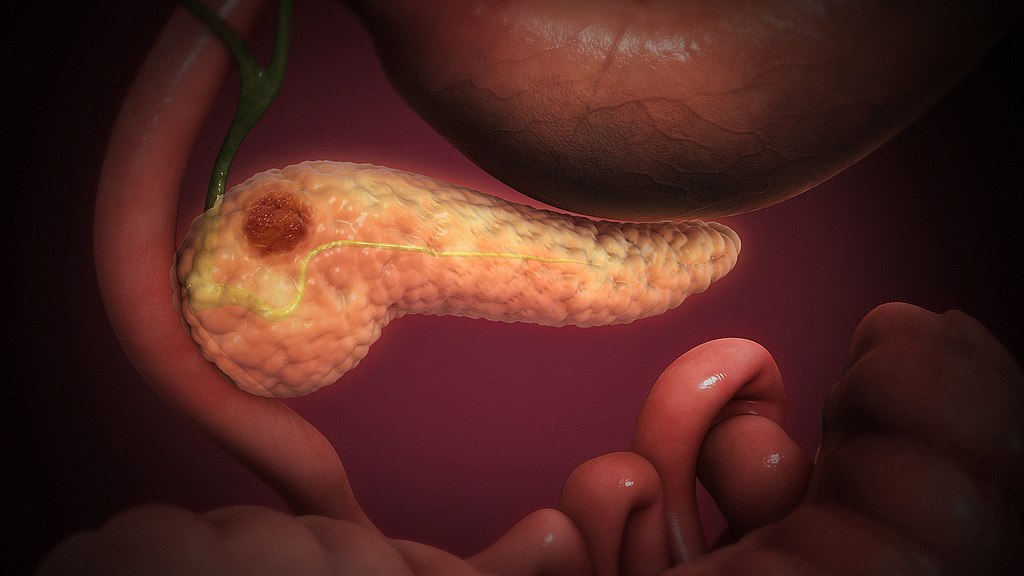
Dr Tim Humpton is co-lead on a new study into mitophagy in pancreatic cancer cells.
Pancreatic cancer is a devastating disease with a dismal five-year survival rate. One feature of pancreatic cancer cells is an incredible ability to tolerate starvation-like conditions. During my time at Cambridge, I was interested in what made this possible.
Tim Humpton
Research into how cancer cells destroy their own mitochondria could offer a promising new target for pancreatic cancer therapies, according to a new study.
The study is co-led by Gates Cambridge Scholar Dr Tim Humpton and published in the journal Cancer Discovery.
The research, which is part of a long-running collaboration between Dr Humpton at the CRUK Beatson Institute in Glasgow and Dr Dave Tuveson and his group of researchers at Cold Spring Harbor Laboratory in the USA, is based in part on work done by Dr Humpton [2010] while he was doing his PhD in Biochemistry at the University of Cambridge.
He says: “Pancreatic cancer is a devastating disease with a dismal five-year survival rate. One feature of pancreatic cancer cells is an incredible ability to tolerate starvation-like conditions. During my time at Cambridge, I was interested in what made this possible. I discovered that unlike normal cells that keep spare mitochondria in reserve, pancreatic cancer cells instead destroy surplus mitochondria through a process called mitophagy. This strategy increases pancreatic cancer cell resilience in two ways – by limiting the production of toxic reactive oxygen species from mitochondria and by freeing limited nutrients that would’ve been consumed by mitochondria to use for tumour growth instead.”
The new study describes what happens when a protein called KRAS becomes active in the uniquely nutrient-depleted environment of a pancreas tumour. KRAS starts a “signaling cascade” which results in mitophagy and the diversion of glucose and glutamine away from the remaining mitochondria. These diverted nutrients are used to support cell division.
Instead of stopping KRAS directly, which was not possible, the researchers traced the cascade of protein signals that follows KRAS activation. They found one pathway which leads to an increase in the protein NIX. NIX is directly responsible for triggering that mitophagy stage which appears to be so crucial for cancer cell proliferation.
The study shows that by inhibiting the NIX pathway cancer cells might be prevented from using energy the way they need to in order to proliferate. The study was done on mice and the team are now looking to see if the same applies with human pancreatic cancer cells.
Dr Humpton is now investigating whether this pathway generalises to other cancers that contain mutated KRAS while his collaborator Dr Dave Tuveson and his group are now turning their attention to disrupting the NIX pathway in human pancreatic cancer cells.
Dr Humpton says: “We found that high levels of mitophagy are correlated with worse prognosis in pancreatic cancer patients and that blocking mitophagy significantly delays tumours and increases survival in an animal model of pancreatic cancer. We now believe that mitophagy may represent a new and potentially targetable dependency in pancreatic cancer.”
*Picture credit: Cancerous cells forming a lump in the pancreatic tissue. Source: http://www.scientificanimations.com/wiki-images/. Author: Scientific Animations Inc.

Timothy Humpton
- Alumni
- United States
- 2010 PhD Oncology
- Corpus Christi College
I am a Reader and Research Group Leader within the Department of Biological and Biomedical Sciences at Glasgow Caledonian University in Glasgow, UK. My research interests centre on elucidating protective functions of the p53 tumour suppressor protein in the liver. I am particularly interested in uncovering non-tumour functions for p53 during, for example, liver regeneration, in the response to overfeeding, and in the progression from fatty liver (NAFLD) to NASH and liver cancer (HCC). My work is supported by grant funding from Tenouvs Scotland (2022-2023), the Academy of Medical Sciences (AMS) Springboard scheme (2023-2025), and the UK Medical Research Council through a New Investigator Research Grant (2024-2027).
Previous Education
Massachusetts Institute of Technology Biology 2010












